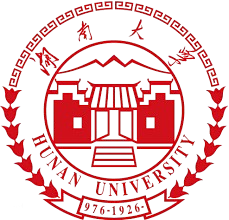A Master’s degree in International Law provides students with specialized knowledge of legal principles governing relations between nations, organizations, and individuals on a global scale. This program is designed to develop expertise in areas such as human rights, trade law, environmental law, and dispute resolution, preparing graduates for careers in international law, diplomacy, and global governance. Here’s an overview of the key components of the program:
Program Overview
- Public International Law: Students examine the foundational principles and treaties that govern relationships between states, such as sovereignty, jurisdiction, and international agreements.
- Human Rights Law: This course focuses on the protection of individual and group rights at the international level, covering major human rights treaties, enforcement mechanisms, and case studies from around the world.
- International Trade and Investment Law: Students learn about the regulations that govern global trade and foreign investment, including the roles of the WTO, trade agreements, and dispute resolution in trade conflicts.
- Environmental and Climate Law: This area explores legal frameworks addressing global environmental issues, including climate change, biodiversity protection, and sustainable development, examining both national and international regulatory responses.
- International Humanitarian Law: Covering the laws of war and conflict, this course provides insight into the protection of civilians, prisoners, and combatants, along with legal principles governing conduct in conflicts.
- Dispute Resolution and Arbitration: Students gain skills in alternative dispute resolution, including negotiation, mediation, and arbitration, as well as an understanding of how disputes are resolved in international courts and tribunals.
- International Criminal Law: This component covers the prosecution of crimes such as genocide, war crimes, and crimes against humanity, examining the role of international courts like the International Criminal Court (ICC).
- International Organizations and Governance: This course examines the structure and functions of organizations such as the United Nations, the International Court of Justice, and regional bodies, focusing on how they impact international law.
Career Paths
Graduates with a Master’s in International Law can pursue careers such as:
- International Lawyer: Working for law firms, governments, or international organizations.
- Diplomat or Foreign Service Officer: Representing national interests in international relations.
- Human Rights Advocate: Promoting and defending human rights through NGOs or intergovernmental bodies.
- Trade and Compliance Specialist: Ensuring organizations comply with international trade laws.
- Legal Advisor for International Organizations: Providing legal expertise to the UN, EU, World Bank, and other institutions.
- International Arbitrator: Mediating and resolving cross-border disputes.
This program equips students with the legal and analytical skills necessary to navigate and influence international legal systems, preparing them to address complex global challenges through a legal lens.
- 30-06-2025
- ¥800
- ¥0
- ¥0









 Apply Now
Apply Now

